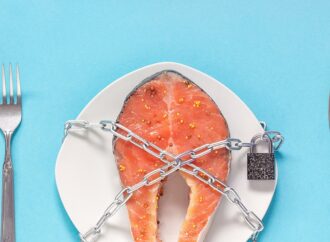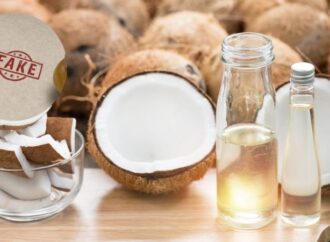Potassium is not just an element found in igneous rocks or its uses are limited to fertilisers. It is also found in the human body and plays an important role in its daily functioning. So, having the right measure of potassium in your diet keeps your body working like the well-oiled machine it is designed to be!
Why You Need Potassium
Potassium plays a vital role in regulating fluid, sending nerve signals and muscle contractions.
Potassium aids your kidneys in eliminating the extra sodium from your body through the urine. This is something to be thankful for because an excess of sodium can cause hypertension and other problems!
Bone health and regulation of calcium absorption and calcium loss from your body is tied to its potassium levels. This implies that potassium is important to prevent thinning of your bones.

That’s not all, potassium is immensely important in regulating your heart rhythm aka your heartbeat!
On the off chance that your kidneys aren’t functioning at peak levels, an excessive amount of potassium could remain in your blood, a state known as hyperkalemia, which can cause heart and muscle issues and if not treated promptly, will become fatal.
Hypokalemia or low blood potassium is seen in people with poor nutrition, excessive vomiting, adrenal gland disorders, using certain drugs. Hypokalemia can present with weakness, fatigue, muscle cramps, depression, hallucinations etc.
How Much Is Enough?
There is no recommended daily allowance but the WHO recommends consuming at least 3,500 mg per day through food. However, taking an amount higher than 4700 mg/day has not shown any beneficial or negative effects.
| Age | Adequate Intake (approx.) |
|---|---|
| 0-6 months | 400 mg/day |
| 7-12 months | 700 mg/day |
| 1-3 years | 3000 mg/day |
| 4-8 years | 3800 mg/day |
| 9-13 years | 4500 mg/day |
| 14years and up | 4700 mg/day |
| Pregnant women | 4700 mg/day |
| Breastfeeding women | 5100 mg/day |
Your potassium needs may be unique if you have a kidney disorder, electrolyte imbalance, heart disease, or diabetes. The amount needed may be higher or lower than the daily recommended dose. If you suffer from these disorders and are worried about your potassium intake, consult your physician.
Athletes, manual labourers, and certain ethnicities require a higher amount.
Food Sources of Potassium

Fruit Sources
- Bananas
- Oranges
- Melon
- Honeydew
- Apricots
- Grapefruit
- Prunes
- Raisins
- Dates
Plant Sources
- Spinach
- Broccoli
- Potatoes
- Yams
- Mushrooms
- Peas
- Cucumbers
- Soybeans
- Lentils
- Green beans
- Pinto beans
- Kidney beans
Animal Sources
- Halibut
- Cod
- Trout
- Rockfish
- Tuna
- Meat
- Poultry
Other sources
- Salt substitutes (read the label to check potassium levels)
- Molasses
- Nuts
- Meat and poultry
- Brown and wild rice
- Grain oat
- Whole wheat bread and pasta
Conclusion
Potassium is an important element that ensures the smooth functioning of your body. Get your daily dose effortlessly by adding an array of yummy fruits and veggies to your diet!
 Food Manifest
Food Manifest 


















Leave a Comment
Your email address will not be published. Required fields are marked with *